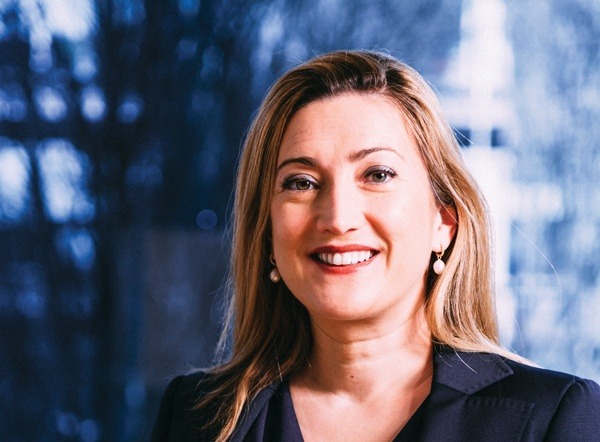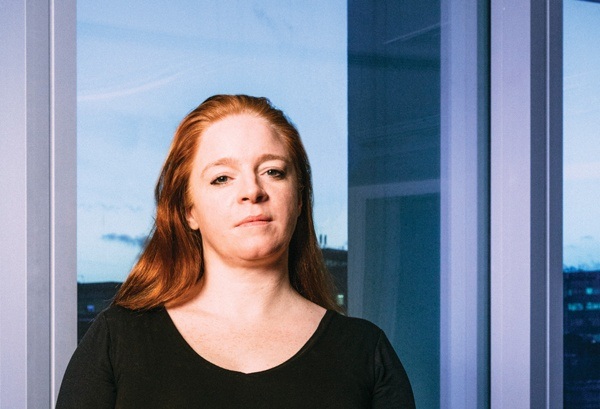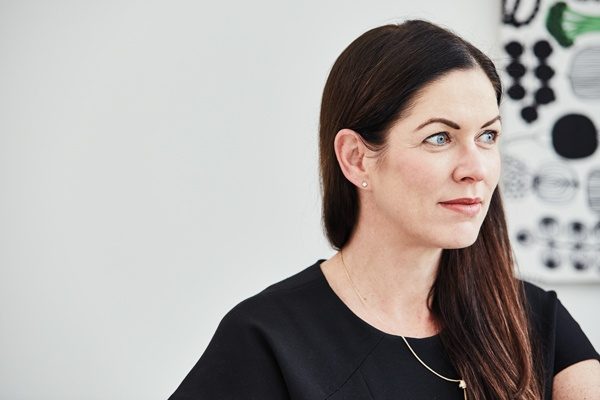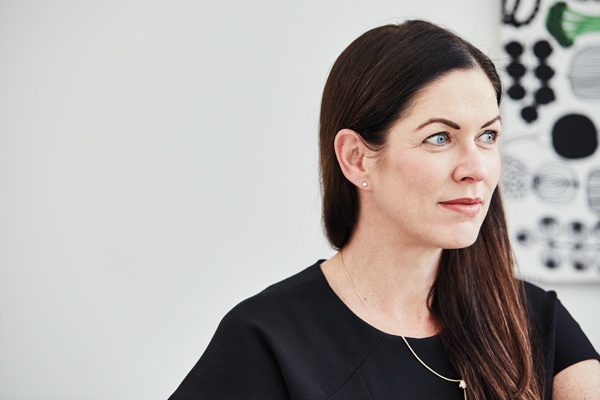‘You will have to go out and find the women – they won’t come to you,’ warns Travers Smith partner Lucie Cawood when The in-House Lawyer began researching this cover feature. That proved an astute prediction.

Even allowing for female understatement, the reality remains that many talented women lawyers opt out of transactional disciplines altogether. While senior women are now common in contentious and advisory practices – and even more so in senior client roles – they still have to fight to establish themselves in M&A, leveraged finance and private equity.
Technology and the gradual adoption of flexible working make it somewhat easier for women to handle the car crash of the partnership promotion phase colliding with the demands of young families. But many unsurprisingly decide there is more autonomy and better options and rewards elsewhere.
‘There is so much crap talked about private equity – late nights and spiky work patterns – that it puts some women off unnecessarily,’ says Ropes & Gray partner Helen Croke. ‘Some people have the incorrect perception that women can’t be a deal lawyer as well as a mother – it’s a perception led by many firms.’
Several male City partners were outright dismissive of this article. One Magic Circle veteran felt the idea was ‘bollocks’, others derided female partners with unquestionable records as ‘useless’.
‘Star culture dictates that 50-year-old men are seen as the real deal,’ agrees Clifford Chance (CC) partner Amy Mahon.
Having sought to take a fair look at what women have achieved in the Square Mile, we have not only identified 21 outstanding female lawyers making their way in transactional law but also made a clear-eyed assessment of the obstacles still facing women fighting to establish themselves in the most competitive fields of law.
‘We do the maths’
The challenges for female lawyers breaking through in deal work have been as well-rehearsed as they are still relevant. Even the most on-message firms concede there is a paucity of female lawyers making it through to partner. Of the top 25 M&A partners in the City at best only two women could credibly be cited – Slaughter and May veteran Nilufer von Bismarck and Linklaters’ dynamic corporate chief Aedamar Comiskey. Narrow the field to the top dozen and you struggle to find anyone who claims the group is not exclusively male.
Figures compiled by Legal Business three years ago demonstrated that firms with heavier transactional practices do far worse in the proportion of female partner ranks. Women then accounted for less than a fifth of the partnership at all five Magic Circle firms. There is little to suggest these proportions have much changed. CC, which pledged to have at least 30% female partnership way back in 2009, as of 1 May 2017 had achieved just 18.2%.

Amy Mahon, Clifford Chance
And transactional disciplines remain hugely demanding. ‘It is a very competitive market and most client demands are very uncompromising in deal work. It is very difficult to work flexibly around them but some progress is being made,’ says Macfarlanes senior partner Charles Martin.
‘It happens earlier in private equity and M&A. We all do the maths and work out what we want from life. It’s daunting. People will leave before they have to make a decision,’ says Cawood. Another female partner echoes the point: ‘All the clients are male, the majority of lawyers on the other side are male. You don’t see this environment as me.’
And beneath the platitudes, the world of the deal junkie remains a boys’ club. Several male City partners were outright dismissive of this article – often in colourful language. Reasons given were sometimes faith in the profession’s meritocracy, sometimes doubts there was enough female talent to support a piece. One Magic Circle veteran now at a top New York firm, felt the idea was ‘bollocks’, others derided female partners with seemingly unquestionable records as ‘useless’.
‘I’ve had men screaming at me telling me I’m stupid,’ recalls Croke. ‘Would they have reacted so badly to a man?’
Women who brave such enduring attitudes have to wrestle with the challenges of projecting themselves in a world where success is defined by men. Says Tamara Box, Europe and Middle East managing partner at Reed Smith: ‘For women it’s much less obvious that the most talented will always succeed. We promote men on potential, women on performance.’
One female partner says: ‘The crux of the problem is you’re considered a woman, not a deal lawyer. I’ve read the room and left closing dinners because I knew the men didn’t want me to come along to whatever club they were going to next.’
But women have to take some responsibility. Female lawyers often adopt an understated approach in comparison to male colleagues despite a role with a heavy business-development aspect. ‘Men are not burdened by self-doubt as much as women – it’s the perennial issue,’ says Slaughters’ von Bismarck.
An interesting phenomenon noted in this research is the number of high-performing female lawyers with US or Australian backgrounds – perhaps the overly deferential female lawyer is an English disease. Many commented on the inroads being made in the US, where even Cravath, Swaine & Moore is now led by a female rainmaker, Faiza Saeed.
Allen & Overy (A&O) finance partner Denise Gibson says a spell working in a commercial role – as she did at Goldman Sachs – helps build confidence. ‘Goldman was a fantastic experience. Investment banking has a strong culture of self-promotion. You have to make people aware of what you are doing. Lawyers struggle with that but it is important to find a way to self-promote that doesn’t make you feel uncomfortable and that feels authentic.’
While few dispute that transactional work remains harder on women, nuances emerge within the practice lines. Despite a deserved reputation as one of the most laddish practice areas, private equity is also a young lawyers’ game, which shortens the cycle of partners emerging. More than a dozen female private equity specialists were cited in our research out of a total pool of 50 highlighted women.

Claire McDaid, Willkie Farr & Gallagher
The equation is different in public M&A. The institutionalisation of plc clients favours the collaborative long-term relationship-building that is arguably more common among female partners. Likewise, bluechip clients are the most likely to press for diversity in pitch teams and themselves have female GCs. But change happens slowly in a field still defined by big beasts in their 50s.
Ironically, acting for male-dominated sponsor clients may be one of the breakthrough areas for female lawyers, particularly if young female partners move to fill the space as male colleagues are poached by predatory US rivals. It is, after all, widely accepted that female partners are more loyal and generally short-changed in a partnership recruitment process that favours ego-driven men who make big promises. Notes Edwards Gibson founder Scott Gibson: ‘Women nearly always underplay their billings – always downplay how much they’ll be able to bring in when men tend to exaggerate the figures.’
‘I’ve been lucky’
There appear to be patterns in the firms that have better records in fostering women partners. Perhaps, surprisingly, the City’s traditional M&A leaders – Linklaters, Freshfields Bruckhaus Deringer and Slaughters – all emerge relatively well in the number of cited female lawyers, with Linklaters’ arguably the strongest of the trio. Linklaters not only boasts plenty of talent but also a good spread of women partners in leadership roles. The firm’s core executive board includes four female transactional partners: Comiskey and Sarah Wiggins in London as well as Claudia Parzani (Milan) and Nathalie Hobbs (Hong Kong). ‘It is tricky, man or woman,’ says Comiskey. ‘If you want to be a top lawyer you have to be there for your clients when they need you: that’s gender neutral.’
Others singled out in our research include Travers Smith and CMS, the latter home to influential hands like Penelope Warne and Louise Wallace. ‘[Travers Smith senior partner] Chris Hale always took me to networking things and taught me you need to do it,’ recalls Croke of her former firm. ‘He and [former partner] Charlie Barter never once made me feel as if I couldn’t do it because I was a woman – it just wasn’t a thing.’
In contrast, some firms with progressive reputations such as A&O and CC came out relatively light in terms of widely cited lawyers and chasing pack City advisers like Herbert Smith Freehills and Ashurst have much room to improve.
While US advisers generally have a poor record in their City deal teams, Weil, Gotshal & Manges and Simpson Thacher & Bartlett both boast a significant number of notable practitioners.
A number of peers highlighted Weil Gotshal playmaker Mike Francies, as an admirable rarity of a top-flight deal hand who has supported female partners. ‘Mike has been a huge champion in promoting women partners – it’s a personal goal for him,’ says Weil Gotshal partner Sam McGonigle. ‘Francies is the perfect example of a promoter of women,’ says one peer. ‘He’s completely blind to who you are – you could be an alien or a dog for all he cares as long as you get the best outcome for the client.’

Helen Croke, Ropes & Gray
Wheatly MacNamara, one of a trio of much-cited female partners at Simpson Thacher’s City arm, comments on her experiences: ‘I’ve been lucky. The partners are supportive and [key client] Blackstone is supportive. I’ve never gotten the feeling they thought I would be more effective if I were male.’
Nevertheless, the three pace-makers among US firms in London – Latham & Watkins, Kirkland & Ellis and White & Case – can do better. And examples of senior males championing women are unfortunately still too rare. Linklaters senior partner Charlie Jacobs argues that one of the biggest challenges facing female partners is getting fair credit from an establishment that is older and resoundingly male. He comments: ‘Historically, males have been better at promoting themselves and firms have been better at promoting male lawyers.’
It also seems notable that many firms with cited deal lawyers have lockstep pay models and a tendency to develop their own partners internally over lateral hires, giving some weight to the claim that women do better in team-orientated institutions.
‘Great freedom’
With all justified cynicism, there are reasons to believe that change is crawling into view. City firms have yet to address the haemorrhaging of female associates that turns 50%-plus female intakes into partnerships where only one in five are women. Yet the law continues to benefit from high influxes of highly-educated women in comparison to other industries. Eventually, that starts to change an industry, even one that treats such assets so wastefully.
More to the point, senior female representation is advancing well ahead of private practice at in-house legal teams. In the last GC Powerlist focusing on senior general counsel (GC) of major UK companies in 2016, 42 of the 100 selected legal heads were women. The proportion is higher at the mid-level.
More clients are tired of the endless parade of men at pitches. One partner recalls being wheeled out for a pitch because the client demanded a woman, even though she would not be working with the sponsor.
‘There are more and more female GCs in M&A and private equity,’ says MacNamara, offering Round Hill Capital and KKR Europe as examples. Von Bismarck agrees, citing Erica Handling the European GC for BlackRock; Laura Holleman at Goldman Sachs; and Natalia Nicolaidis at Credit Suisse. ‘The environment has already changed and I can’t see how the increase in female GCs won’t have a positive effect on the number of women deal lawyers in the next five or ten years,’ says MacNamara.
By common consent, the debate around flexible working remains problematic in transactional law. While it is effective – and was cited by a number of partners interviewed for this article – it only delivers in M&A when executed at a team level. Family-friendly policies are also held back by the well-founded belief that they ghettoise women’s careers.
‘Women think that flexible working is falling into a trap,’ says Claire McDaid of Willkie Farr & Gallagher. ‘If you go down to four days a week you’ll end up getting paid 20% less and still may often have to work five days plus the weekend. Instead women should say to themselves – what if I substituted having to “do the school run” with “train for a triathlon”. Those things men wouldn’t even think of asking permission for.’
Still, a substantial proportion of our highlighted deal stars have combined families with demanding careers. Among them are Comiskey, Mahon, McDaid, MacNamara, Cawood, Box and Croke as well as Sidley Austin’s Yen Sum and A&O’s Denise Gibson, who gave birth to twin girls in December. Vanessa Blackmore, now of Sullivan & Cromwell, welcomed A&O’s then-pioneering offer for her to work four days a week after the birth of her second child when she was an associate at the firm – an arrangement she took on for 18 months.
And while achieving flexibility is difficult, it is not impossible. One female partner notes the huge impact of organising teams so ‘someone is there to cover if you need to go to a lunch so that the weekend isn’t ruined’. She adds: ‘You need to have a good team which likes working with you and will go the extra mile. You can predict clients’ movements to a certain extent. On a Friday night I know I’m going to get [one of her leading client’s] calls – it’s lack of planning rather than maliciousness. But you can pre-empt by calling in the morning.’
Ashurst partner Karen Davies echoes the point, stressing the need for firms to monitor work allocation so women associates get a fair share of client contact and business development to hone their skills ‘hustling and building relationships’.

Denise Gibson, Allen & Overy
Eventually, the spread of such role models starts to have an impact, even on the law. With that comes the realisation that women can be as effective with different approaches. One partner cites her most productive networking event as seeing Take That at Wembley. Mahon recalls taking a client to Disney on Ice. There is a world of networking opportunities more inventive than the male classics of pubs/sporting bashes. Though plenty of women like that stuff too.
‘In the old days people would say men have got better business development skills,’ notes Jacobs. ‘People would think women would not kick down the doors. Now you realise there are different ways of winning work. You can have different styles.’
‘My generation worked largely with male partners so I hope the current generation of associates take support from the increasing number of female partners as role models and we have a greater number of female partners in the future,’ says Taylor Wessing’s private equity head Emma Danks. ‘I am hopeful there will be more women in the future.’
Ultimately, change will require women to demand it more than expect male-dominated law firms to easily hand it over. Women lawyers must also remember that in a service industry the majority of elite male M&A partners got there after relentlessly building their personal brands, not always relying on their platforms and defaulting to team-comes-first collaboration. The excesses of male partners are no reason to over-compensate the other way.
Linklaters partner Jessamy Gallagher concludes: ‘Yes, there are more men. But look at the advantages with being a woman. There are fewer role models you are expected to follow, you stand out more easily, which is very helpful in building client relationships. You have great freedom to determine how you want to do things.’
A growing band of women intends to seize that opportunity.
nathalie.tidman@legalease.co.uk
marco.cillario@legalease.co.uk
Deal stars
M&A/corporate
Aedamar Comiskey, Jessamy Gallagher, Linklaters
Linklaters’ head of corporate Aedamar Comiskey stands as one of the few female heavyweights in public M&A. ‘She is technically very strong and does a good job of balancing the transactional side and the management stuff,’ notes Ashurst’s Karen Davies, one of more than a dozen peers to laud the Linklaters veteran.
Arguably the other standout M&A name is Jessamy Gallagher, who co-heads the firm’s infrastructure group. Says Linklaters senior partner Charlie Jacobs: ‘She is a real force and the sky is the limit.’
Vanessa Blackmore, Sullivan & Cromwell
One of the few female M&A heavyweights to have changed firms, Vanessa Blackmore has sustained an enviable run of premium work spanning M&A, restructuring and equity capital markets across Allen & Overy and then Sullivan & Cromwell, which she joined in 2006.
Nilufer von Bismarck, Slaughter and May
With the much-admired Frances Murphy sadly passing away in 2016, Nilufer von Bismarck stands as the dominant female operator in the City’s best M&A team. The corporate and equity capital markets lawyer has maintained a robust practice across more than 25 years in the City. ‘Technically very strong – formidable and brilliant,’ notes one of many peers to highlight her work.
Karen Davies, Ashurst
The boys’ club of Ashurst’s corporate team was certainly not, historically kind to women – which gives extra credit to Karen Davies’ tenacity. Aside from making it on to Ashurst’s board, the deal veteran in the last three years has established herself as one of the firm’s most prolific practitioners in substantive M&A.
Claire Wills, Freshfields Bruckhaus Deringer
‘Pretty phenomenal,’ says one recruiter of Claire Wills’ client and deal list, to say nothing of her position as co-head of global financial institutions at Freshfields Bruckhaus Deringer. She is the relationship partner for Barclays, HSBC, JP Morgan, Prudential and Tesco, having advised the latter on two substantial carve-outs.
Private equity
Claire McDaid, Willkie Farr & Gallagher
Willkie Farr & Gallagher’s Claire McDaid has a clear record as a business-builder. The former Kirkland & Ellis partner was recruited in 2014 along with Matthew Dean to spearhead a City private equity practice for the New York institution. The result has been one of the most impressive new-builds in the City in recent years.
Wheatly MacNamara, Simpson Thacher & Bartlett
‘A real superstar’ is the consensus on Wheatly MacNamara, who has become a go-to adviser for Blackstone Real Estate’s prodigious European operation. Fellow corporate partner Clare Gaskell commends MacNamara’s ‘amazing practice’.
Helen Croke, Ropes & Gray
‘She is straightforward and tough – in a good way,’ reflects one partner at a US rival of Helen Croke, who was cited by more than half a dozen peers in our research. Paul Dolman, head of private equity at Croke’s previous home, Travers Smith, likewise notes: ‘I was sorry to have lost Helen – a very good deal lawyer.’
Samantha McGonigle, Weil, Gotshal & Manges
Weil, Gotshal & Manges’ Samantha McGonigle is one of the most cited young buyout partners in the Square Mile. Aside from peers at Clifford Chance, Kirkland & Ellis and Ropes & Gray, McGonigle has been cited by The Legal 500, IFLR and Financial News.
Amy Mahon, Clifford Chance
Amy Mahon remains the most widely cited female partner in private equity. One admiring finance colleague calls her ‘the most visible woman at Clifford Chance’. Among those highlighting Mahon’s contribution include several partners at Simpson Thacher & Bartlett as well as peers at Ropes & Gray and Willkie Farr & Gallagher. Notes one recruiter: ‘She’s loyal to CC but could go wherever she wants.’
Finance
Yen Sum, Sidley Austin
Operating in some of the most fluid areas of finance, restructuring and funds specialist Yen Sum (pictured above left) is rapidly becoming one of the City’s most tipped finance counsel. Says one recruiter of the former Linklaters partner: ‘She’s a superstar – irrespective of her gender. She’s got it all. The true modern lawyer.’
Tamara Box, Reed Smith
Texas-bred finance star Tamara Box brings a refreshing directness to her career. Following successful periods at Lovells and Berwin Leighton Paisner, she joined Reed Smith in 2012 to launch a London structured finance practice. The group has since grown to 26 lawyers. She went on to become Reed Smith Europe and Middle East managing partner in 2016 but remains a major biller.
Denise Gibson, Allen & Overy
Denise Gibson is one of the most-tipped young banking partners in the City, period. The former Goldman Sachs director covers the complex end of leveraged finance. ‘She’s outstanding. Clients love her. Forthright style – cuts to the quick of the issues. Very well respected,’ recalls former A&O senior partner David Morley.
Jayanthi Sadanandan, Latham & Watkins
Jayanthi Sadanandan has built a reputation as a consistent performer against formidable competition, despite the reputation of leveraged finance as a boys’ club. Aside from a busy practice for clients such as Cinven, CVC and Hellman & Friedman, she has since 2015 squeezed in the London managing partner duties as well.
Rebecca Jarvis, Linklaters
Linklaters’ restructuring and insolvency co-head Rebecca Jarvis has a superb record over a 25-year legal career. ‘An unsung hero. Formidable,’ says senior partner Charlie Jacobs. ‘Her number has been on my speed dial for the last ten years.’
Mid-tier
Penelope Warne, CMS
The gracious style of CMS UK senior partner Penelope Warne belies a practitioner with rock solid credentials as an entrepreneurial and assured energy adviser. In 2013 she was elected senior partner of CMS Cameron McKenna, becoming one of the few women to ever lead a top 50 UK law firm. In 2016 she helped drive forward the much-touted, three-way union between CMS Cameron McKenna, Nabarro and Olswang.
Emma Danks, Taylor Wessing
Taylor Wessing’s youthful head of private equity Emma Danks
received five separate citations in our research. Says one admirer:
‘She’s built one of the best mid-market practices in PE – she got
herself into a good space.’
Anu Balasubramanian, DLA Piper
The former Kirkland & Ellis lawyer Anu Balasubramanian is DLA Piper’s strongest female deal name in London, having joined the firm in 2013. While her profile remains low key in the market, at DLA she has built a reputation as a prolific operator for mid-market work.
Jessica Adam, Macfarlanes
Having established herself in the classy deal team of Macfarlanes, Jessica Adam is reliably cited as the firm’s strongest female operator for M&A. Adam works with clients including Virgin and Exponent.
Lucie Cawood, Travers Smith
It is hard to stand out as a private equity lawyer in a team with as strong a sponsor heritage as Travers Smith but Lucie Cawood has managed it, forged in part on the back of a relationship with 3i.
Notes Travers private equity chief Paul Dolman: ‘[Cawood] has come out of the shadow of Helen Croke. A real star of the future. A very talented individual.’


